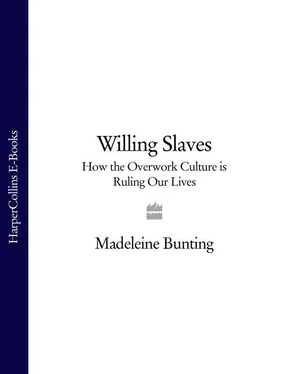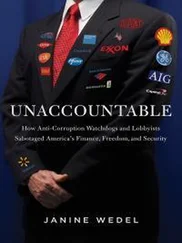The policies of the eighties and nineties (Tony Blair’s Labour government has done little more than modify the Thatcherite model) were based, John Gray argued in his book False Dawn: The Delusions of Global Capitalism (1998), on ‘the theory that market freedoms are natural and political restraints on markets are artificial. The truth is that free markets are creatures of state power, and persist only so long as the state is able to prevent human needs for security and the control of economic risk from finding political expression.’ The speeding-up of communication, trade and capital flows generates unpredictable and constant change: all that filters down to daily lives, where individuals struggle to adjust – to speed up their pace of work, to stretch their working hours to get the job done, to adapt family routines to the 24/7 service economy, to find new jobs and acquire new skills – and to make sense of those constant necessary adjustments. As Gray puts it, ‘The imperatives of flexibility and mobility imposed by deregulated labour markets put particular strain on traditional modes of family life. How can families meet for meals when both parents work on shifts? What becomes of families when the job market pulls parents apart?’ Both Tony Blair and Gordon Brown proudly point to the present low unemployment rate as the product of the UK’s lightly regulated labour market, but they overlook the price we pay in long working hours, exhaustion and rising stress.
The great failure of market economies is that they take no measure of externalities: if something doesn’t have a market value, it doesn’t exist; this is what economists call ‘the tragedy of the commons’. The emergence and development of the environmental movement pioneered the understanding of how markets, in a bid to drive down costs, ‘externalise’ them – or, to put it more crudely, get someone else (usually the taxpayer) to pay for them; for example, polluting a river is cheaper than processing the waste product and recycling it. In just the same way, markets externalise the social costs of their ways of working; it is left to individuals – and their overworked NHS doctors – to deal with the exhaustion, work-related depression, stress and the care deficit.
Just as the late twentieth century grasped the fact that there was a crisis of environmental sustainability, the twenty-first century is beginning to grasp the dimensions of a comparable crisis, this time of human sustainability – a scarcity of the conditions which nurture resilient, secure individuals, families, friendships and communities. Who has time to care for whom in the overwork culture? The price is paid not just by children, but by their exhausted parents, the lost friends and the lonely elderly. The consequences of this crisis can be traced in the rising incidence of depression – by 2020, it is predicted, it will be the world’s most prevalent disease – as well as in family breakdown and the rise in loneliness. This crisis of human sustainability is not just an affliction of Western developed nations, but a consequence of neo-liberal economic development, and is evident in the fast-growing cities of developing countries, where rapid urbanisation is coinciding with the rise of female employment. 3At its most dangerous, the crisis triggers the defensive coping mechanisms of finding substitute security in rigid, clear-cut ways of thinking which spill over into fundamentalism. This crisis cannot entirely be placed at the door of work, but employment is one of the prime causes; it is driving a stress epidemic as more and more is expected of employees, and it is depriving people of both the time and the energy to lead lives with a rich diversity of experience. Lives in which they have time to fulfil their responsibilities to others, be they children, the elderly, friends, neighbours or fellow citizens, and to develop interests and hobbies.
Job satisfaction fell sharply in the nineties. Yet there has been little protest: both trade union membership and the number of days lost to strike action are sharply down since the eighties. There has been no great effort to question why work is getting tougher – we accepted that it was the competitive pressures of the market, or the drive for public sector reform. The result is this undercurrent of frustration, and at its worst quiet despair. Instead of joining a trade union, people sought private solutions, treating themselves to aromatherapy or a nice holiday in the sun instead. The response of the trade union movement, beleaguered by the loss of members and of jobs in its manufacturing heartland, still battling to re-establish its legitimacy in national life, has often been piecemeal and ineffective. The unions were slow to push working time, rather than their traditional priority of pay, to the top of their campaigning agenda. They have been slow to revitalise the old struggle over working time which they so successfully championed in the nineteenth century. They are only now reconnecting to that radical agenda first laid out by the International Association of Working Men (later the First International) which commemorated its first meeting over 140 years ago with a specially made watch, the face of which was inscribed: ‘We require eight hours work, eight hours for our own instruction and eight hours for repose.’
It’s a rallying cry as relevant to the twenty-first century as it was to the nineteenth: the dream of a forty-hour week is for many British workers further from being realised than ever. The trade unions have been held back by prejudices in favour of ‘proper’ full-time jobs from pushing for the reorganisation of work which is possible in a flexible economy. The undermining of the unions has left a vacuum in Britain. Who speaks for the working man and woman? Where is the campaign to wrest back control of our time, to demand the right to a day’s work which leaves one with the energy to do more than stagger home and slump onto the sofa?
The answer, I was repeatedly told by those defending the status quo, is that people make their own choices. If they want to work hard, that is up to them. If they want to opt out, to downshift and live the good life, they can do so. It is all up to them. This is a powerful rubric for those defending neo-liberalism, and has successfully debilitated any collective consensus about what is wrong and what needs to be put right. Some people don’t have any choice; they have poorly-paid jobs which require long hours, and even then they don’t make what would be commonly described as a ‘decent living’. But the bulk of this book is focused on the predicament of the broad swathe of what might now constitute the British middle classes, ranging from skilled factory workers to white-collar managers. For the vast majority there is a degree of choice in how hard they work. But the choices we make are not made in isolation: they are the product of the particular organisational culture of our workplaces, which promote concepts of success, of team spirit so that we don’t let colleagues down, and a powerful work ethic. We are also influenced by a culture which reinforces that work ethic and its cycle of continual achievement and consumption as measures of self-worth, and that has developed a tight grip on exactly those workers in white-collar professional and managerial jobs whose conditions deteriorated most significantly in the nineties, yet who have potentially the most bargaining power in the labour market. These are the classes whose grandparents saw leisure as a sign of status. Now, it is overwork that has become a sign of status – the laptop on holiday, the permanently ringing mobile and the bulging inbox.
In the seventies, commentators and policy-makers worried that the work ethic was in terminal decline. They needn’t have: it was reformulated, and is now stronger than ever, particularly amongst the most educated. It is through work that we seek to satisfy our craving for a sense of control, of mastery, of security and autonomy in a chaotic, insecure world: this is the gold at the end of the rainbow. The craving is never satiated, we are always promised more if we work that bit harder.
Читать дальше












